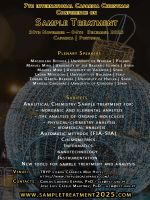Quality Improvement for Criminal Investigations - Lessons from Science?
DOI: 10.5584/jiomics.v8i1.215
Abstract
Criminal investigations generally aim at discovering previously unknown facts. The same is true for scientific (or academic) research. Both follow a rather tight framework of rules – most importantly, the principles of objectivity, reliability and validity. However, some of the intentions differ. Science generally attempts to discover and/or explain new principles, while criminal inquiries are instead usually bound to past, often singular, events. For example, the methods used in forensic investigations are required to be well established, standardised and undisputed inasmuch as possible. In contrast, the exploration of new methods is an important feature of the advancement of science. Consequently, both tendencies – similarities and opposites – can be discerned when comparing criminal and academic examinations.
The ‘Pareto principle’ indicates that the vast majority of all criminal investigations run rather unproblematically. Nevertheless, the highest quality criteria must be guaranteed for these and the remaining, more challenging cases as well – based on the ‘fair trial’ principle. Acknowledging that mistakes are inevitable (Murphy’s law), methodical approaches for error identification, handling, management and reduction are essential.
Error correction mechanisms that are typical for forensic statements normally include a second source of expertise and/or an appeals procedure. In academic science, however, the peer review system has long been established as the most important quality control and error correction system. Furthermore, possible mistakes can usually be corrected in later, more detailed studies. However, the central position of forensic experts and criminal investigators in a legal procedure and the severe personal consequences of incorrect statements emphasize the high importance of continuous improvement of both the qualifications of the investigators and the quality of their methods.
Nevertheless, error reduction provisions should not be restricted to technical measures such as quality management and accreditations. Furthermore, a systemic/organisational approach towards error management seems promising. This involves, among other measures, a systematic examination of mistakes and the recognition of the human factors that underlie them. Nevertheless, an indispensable component for quality enhancement is intense cooperation from both sides – the criminalistic and forensic practice as well as the scientific (basic) research.









